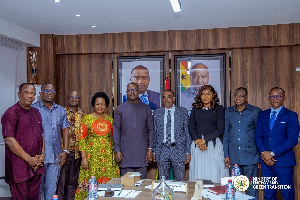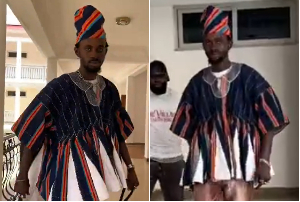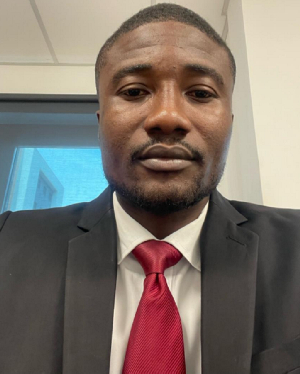A Fast Track High Court has ordered forensic audit into the accounts of Judicial Service Staff Association of Ghana (JUSAG).
It further ordered that an Interim Management Committee (IMC) made up of five members nominated by JUSAG and representatives from the previous executives of the association be formed to run the affairs of the association, including the organisation of its Fifth Triennial Conference during the Easter Vacation.
The court presided over by Justice K.A. Ofori Atta ordered the previous executives to vacate their post so that the members of the IMC could take over.
The ruling comes after the court had restrained six defendants from managing the affairs of JUSAG and holding themselves as officers until they were otherwise directed.
Delivering its ruling, the court said it had been established that the plaintiffs had the right, which ought to be protected by the court and there were issues that did not make the application before it frivolous.
It noted that it was a common knowledge that the term of the defendants expired in September 2011, adding that “They however purport to hold onto their offices as a result of a resolution."
Thirteen members of JUSAG dragged six executives of the group to the court over alleged misappropriation of funds.
They were praying the court for an order of forensic auditing of JUSAG's account from 2008 to 2011 and to restrain the executives perpetually from holding themselves as national executive members or as individuals with any executive positions in the association.
They also asked the court to stop “Their agents, privies, assigns from further dealing in any manner with the assets of JUSAG”.
In their affidavit in support of the application, the plaintiffs said some of the main provisions of JUSAG were that its national executives had three-year tenure of office and elections were held thereafter.
The plaintiffs said the defendants tenure of office ended in September 2, 2011, but were still in office.
They said the executives had continued in office as chairmen and members of the regional advisory councils, and allegedly passed a resolution to extend their tenure of office on the grounds that there were no funds to organize a national delegate’s conference.
The plaintiffs contended that the constitution of JUSAG did not make provisions for the purported extension of tenure of office.
They said the defendants had also increased dues paid by members without prior approval of the national delegates conference, and paid allowances to themselves.
Therefore, about 167 members of JUSAG, including the plaintiffs petitioned the Chief Justice, Mrs Georgina Theodora Wood, who set up a committee, which meet in November last year.
At the meeting, plaintiffs said the defendants presented an audited account covering 2008 – 2011, which was rejected and they (plaintiffs) called for a forensic audit of the accounts.
They said at their second meeting, the defendants failed to appear before the committee and could not reach an amicable settlement.
The committee issued a report, which was sent to the Chief Justice.
The plaintiffs said JUSAG's constitution did not have a dispute settlement mechanism.
They contended that defendants were still withdrawing money from JUSAG's coffers including its accounts with the Ghana Commercial Bank, High Street branch, and continued to use the associations properties such as cars and offices.
The plaintiffs noted that it was only a court action that could compel the defendants to halt their operations.
They are, therefore, seeking a declaration that the defendants’ continuous stay in office is in breach of JUSAG's constitution, and that all deeds, appointments and other acts of the defendants done in the name of JUSAG after September 3, 2011, were null and void, and damages for breach of the constitution of JUSAG.
The plaintiffs are: Atsu Kornyoh, Elizabeth Ayim, Michael Frimpong, Roger Ansah Yirenkyi, Jonathan Ocran Tetteh, Daniel Mends, Shaibu Issaka, and Samuel Dinsey.
The rest are Samuel Afotey Otoo, Francis Arthur, John Amanquah, Joseph Ponte-Kwofie and Daniel Boakye Afari.
The defendants are Adia Abdul Latiff, Francis Oscar Asmah, Felix Eddie Quansah, Fred Agbeyaka, Daniel Doh and Linda Banahene.
Crime & Punishment of Thursday, 8 March 2012
Source: GNA












